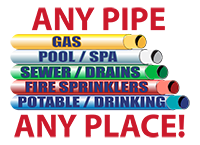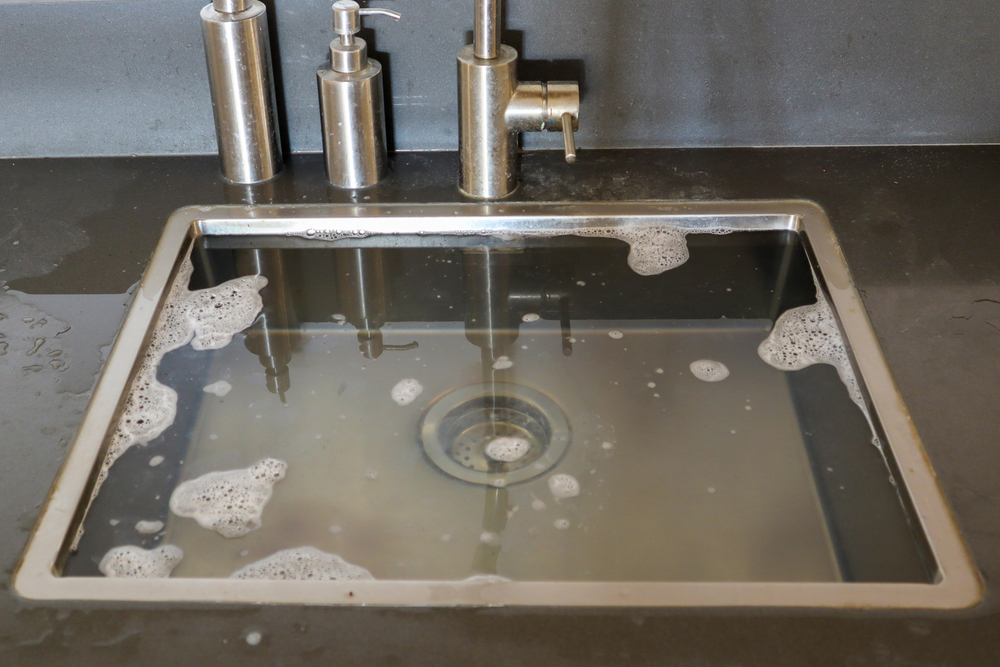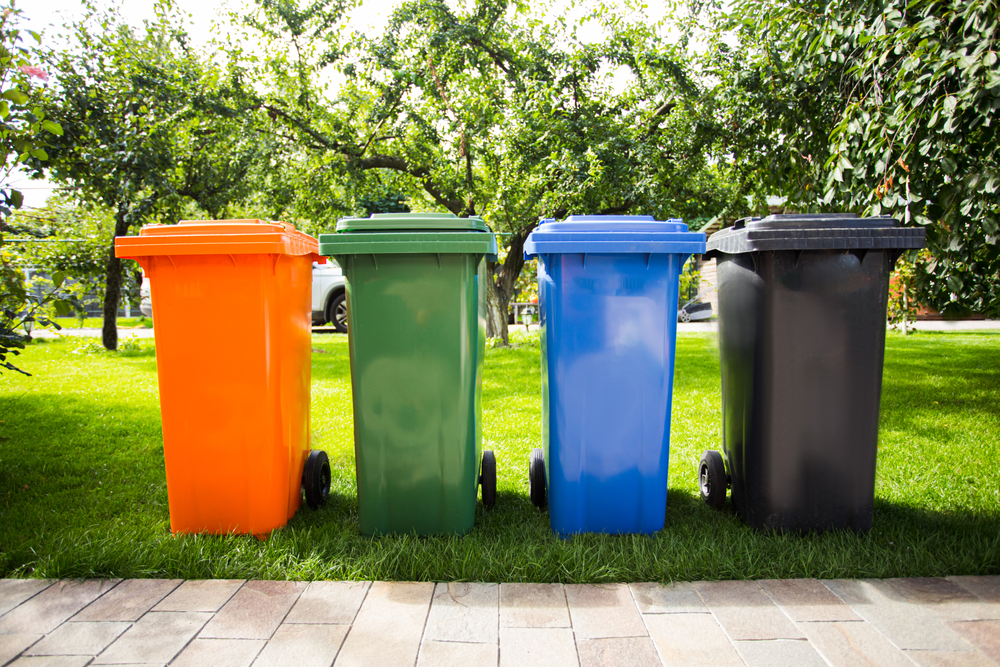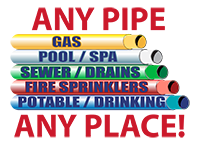Ever thought about what really goes down the drain?
We all know that there are certain things we shouldn’t put down the drain, like cooking grease or food scraps. But what about those things we think are safe to flush, like medications or dental floss? It turns out, there are a lot of things we shouldn’t put down the drain, even if we think they’re safe.
In this blog post, we’ll explore what can and cannot go down the drain, and why it’s important to know the difference. We will also talk about how to safely dispose of things that should not go down the drain.
Let’s get started.
10 things that should never go down the drain
Here are the ten things that should not go down the drain.
Eggshells
Eggshells are a common kitchen item that many people assume can be flushed down the drain. However, eggshells should not be put down the drain as they can clog your pipes. When eggshells break down, they release a sticky substance that can adhere to the sides of your pipes and create a blockage. If you have eggshells that you need to dispose of, it’s best to put them in the trash.
Medications
There are a lot of things that people think can go down the drain, when in reality they really shouldn’t. Medications are one of those things. While you may think that getting rid of them by flushing them down the toilet is the best way to get rid of them, it’s actually not. The medications can end up in our water supply, which can be harmful to both humans and animals.
Chemicals
There are many chemicals that should not go down the drain. Some of these chemicals can react with other substances in the sewer and create hazardous or even poisonous gases. Others can damage the sewage treatment equipment. Here is a list of some common chemicals that should not go down the drain:
- Bleach
- Ammonia
- Drain cleaners
- Paint thinners
- Motor oil
- Pesticides
- Herbicides
- Chloroform
- Toxic or malodorous chemicals
- Ether
- Nitro compounds
- Flammables
- Explosives (peroxides and azides)
Household cleaners
Household cleaners are a necessary part of keeping your home clean and free of harmful bacteria. However, some household cleaners can be damaging to your plumbing if they are poured down the drain. Here is a list of common household cleaners and their effects on your plumbing:
Bleach – Bleach can damage your pipes and should never be poured down the drain.
Dish soap – Dish soap is designed to break down grease and food particles, which can clog your pipes over time. Use dish soap sparingly and rinse well with water after each use.
Laundry detergent – Laundry detergent can be tough on your pipes, especially if it is concentrated. Use only a small amount of laundry detergent and always rinse well with water afterward.
Window cleaner – Window cleaner contains chemicals that can damage your pipes so it is best to avoid using it altogether.
Many household cleaners have strong chemicals that can end up damaging the pipes to the extent that they may need repiping.
Paint
Paint is one of those things that people often don’t think about when it comes to what can and cannot go down the drain. Unfortunately, paint can be a big problem for drains. Paint can clog up your drains and cause all sorts of problems. If you’re doing any painting, be sure to keep the paint out of the drain!
Cotton balls
Cotton balls are often used for applying makeup or cleaning up small spills, but they can easily clog your drain. Even if they don’t cause an immediate blockage, cotton balls can absorb liquids and expand over time, eventually causing a backup. To avoid this problem, dispose of cotton balls in the trash instead of flushing them down the drain.
Product stickers
Product stickers are those pesky little things that always seem to end up on our fingers or in the sink. But what many people don’t realize is that they can actually cause big problems if they’re not disposed of properly.
Product stickers are made of different materials, including paper and plastic. The type of material will dictate how the sticker should be disposed of. If the sticker is made of paper, it can usually be thrown in the trash. However, if the sticker is made of plastic, it needs to be recycled.
Many product stickers also have adhesive on them, which can be a problem if it’s not removed before disposal. Adhesive can clog pipes and cause other damage to your plumbing system. To remove adhesive from a product sticker, try using vinegar or Goo Gone.
Coffee grounds
Coffee grounds can go down the drain, but they should be used sparingly. Coffee grounds can clog drains and cause problems if they are used too frequently. It is best to use coffee grounds only when you have a very slow drain.
Doughs and batters
While many types of food can safely go down the drain, there are some that should be avoided. This is especially true for doughs and batters, which can quickly clog your pipes.
Flour and water are the main ingredients in most doughs and batters. When these products mix with the grease and oil already in your pipes, they can create a sticky mess that will block your drains. And even if your dough or batter doesn’t contain flour, it’s still likely to cause problems. Starch-based batters (such as those used for pancakes or waffles) can also thicken and clog your drains.
So what can you do with leftover dough or batter? The best bet is to throw it in the trash. Otherwise, you may end up with a big mess on your hands.
Grease and cooking oils
Pouring grease or cooking oil down the drain is a common mistake that can lead to big problems. The grease can clog your pipes and cause serious backups. It can also attract pests like rodents and roaches. Grease, oils, and fats that should not be poured down the drain include cooking oils, shortening, animal fats, and margarine.
These types of waste should not be put down the drain as they can solidify and cause blockages. Instead, they should be disposed of in the garbage.
While on this topic, it is important to know the difference between the terms “brown” and “yellow” grease which tend to be used interchangeably.
Yellow grease is the leftover cooking oil that is collected from restaurants. Brown grease refers to the FOG (fats, oil, and grease) waste that grease traps collect.
When fats and oils are poured down the drain, they can lead to the formation of fatbergs in drains and sewers.
Fatbergs are large clumps of congealed grease, food waste, and other materials that can build up in sewers and cause blockages. They are a growing problem in many cities around the world, as people flush more and more things down the drain that shouldn’t be there.
Fatbergs can be incredibly damaging to sewers and wastewater treatment facilities. They can cause overflows and sewage backups, which can lead to environmental pollution and public health hazards. In some cases, fatbergs have even caused sewer explosions.
How to safely dispose of household waste
Here are some safe ways to dispose of household waste, medications, paint, and other items:
Household waste: If it’s food waste, flour, dough, egg shells, paper towels, or hair, it’s best to scrape it into the trash can.
Try to replace paper towels with reusable dish towels or cloth napkins. You can also use a sponge instead of paper towels to clean up a spill. Eggshells can be used as compost materials.
Paint: Water-based paint is okay to rinse down the drain with plenty of water. Oil-based paint should be dried out and then disposed of in the trash.
If you need to dispose of a large volume of paint, contact a hazardous waste facility that will handle the disposal.
Cotton: Try to replace cotton with a reusable washcloth to minimize the amount of trash in your household. If you have to use cotton balls, ensure you put them in the trash can after use. You can also use cotton as a composting material for your garden.
Medications: You should never flush medications down the toilet or pour them down the drain.
The best way to get rid of unwanted medications is to take them to a drug take-back program. These programs are usually run by pharmacies or law enforcement agencies, and they will properly dispose of the medications for you. This is the safest way to ensure that the medications don’t end up in our water supply.
Grease: Grease can solidify in your pipes and cause clogs, so it’s best to scrape it into the trash can.
Another way is to use grease traps to gather fats and oils.
What can go down the drain?
There are a few things that you can safely pour down the drain and most of these are clear liquids that you usually drink. Some items such as salt, baking soda, and vinegar can help unclog your drain and clear the pipes:
- Dilute acids like vinegar
- Water and water-based liquids like juices
- Small food particles
- Small amounts of alcohol
- Milk, tea, or coffee
- Baking soda
- Cooking salt
- Any other liquids that you drink
When it comes to alcohol, only very dilute formulations containing less than 24 percent ethanol can be safely poured down the drain. If you are unsure of the alcohol concentration, it is best to not pour it down the drain.
What to do if your drain is clogged
If your sink is starting to smell or the water is draining more slowly than usual, it may be time to unclog your drain. Luckily, there are a few ways you can do this without having to call a plumber.
One way is to pour 1/2 cup of baking soda down the drain, followed by 1/2 cup of vinegar. Let the mixture sit for 30 minutes, then flush with hot water. This method works best on small clogs.
If you have a more serious clog, you may need to use a plunger. First, make sure there is enough water in the sink so that the plunger can create a seal. Put the plunger over the drain and push and pull vigorously until the clog starts to clear. You may need to repeat this a few times before the drain is completely clear.
You can also try using a plumbing snake to break up any stubborn clogs. Start by putting the snake into the drain and turning it until you feel resistance. Once you hit the clog, continue pushing until it breaks up and starts to move through the pipe.
However, it is better not to use a plumbing snake for a DIY job because you may not have the right type of snake, to begin with.
You may also end up damaging the pipes, particularly if they are galvanized, older pipes, as the snake can scrape the sides. Improper use or aggressive force can end up damaging or breaking the pipe.
When to call a professional plumber in San Diego
If you have tried DIY remedies and found that your drain is still clogged, it is best to call a professional plumber.
There are some signs that indicate it is time to call a professional plumber:
– Water is backing up into your sink, tub, or shower
– Your toilet is overflowing
– There is sewage coming up from your drain
– Your drain is making strange noises
-There is a bad odor from sinks, toilets, or drains
If you are experiencing any of these issues, contact us at the San Diego Plumbing and Pipelining Company.
As the most experienced plumber in San Diego, we will quickly diagnose the problem and provide you with an effective solution. Our services include 24/7 emergency plumbing, sewer repair, pipe inspection, laying grease traps, and more.
Get in touch with us for any plumbing issue you are facing in your home.








